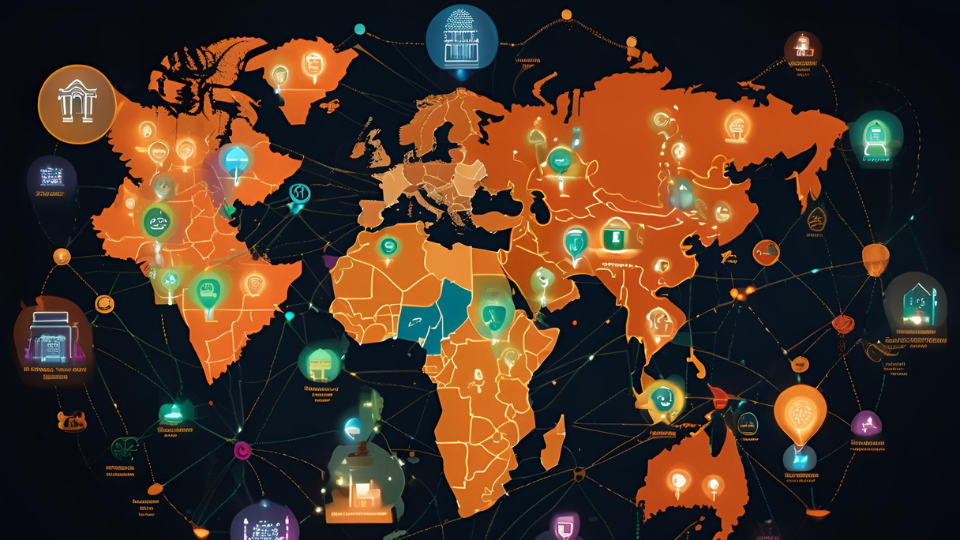The financial landscape in India has undergone a remarkable transformation in the past decade. Once a country with a significant portion of its population excluded from formal financial services, India is now at the forefront of financial technology (FinTech) innovation. Thanks to FinTech startups, millions of Indians, including those in rural areas and the unbanked population, are now able to access critical financial services that were previously out of reach.
In this blog, we’ll explore the FinTech evolution in India and how startups are revolutionizing the industry, pushing the boundaries of what’s possible, and making financial services more inclusive, accessible, and convenient for all. From digital wallets to peer-to-peer lending, let’s dive into the world of FinTech in India in 2025 and beyond.
What is FinTech?
FinTech, short for Financial Technology, refers to the use of technology to provide financial services, improve and automate financial processes, and create new business models within the financial sector. It encompasses a wide range of services, including payments, lending, investment management, insurance, and blockchain technology.
In India, FinTech has rapidly evolved, making it easier for individuals and businesses to engage with financial services in a more efficient, secure, and innovative way.
Why is FinTech Important for Financial Inclusion in India?

India has a massive population, with over 1.4 billion people, but a significant portion of them have limited access to traditional financial services. The rise of FinTech startups has played a pivotal role in bridging this gap, promoting financial inclusion by providing affordable, accessible, and user-friendly services to underserved populations.
Here are some reasons why FinTech is crucial for financial inclusion in India:
1. Access to Banking and Financial Services
India has long struggled with financial exclusion, with millions of people lacking access to formal banking services. FinTech startups have made it easier for people to open bank accounts, transfer money, access loans, and invest, all from the comfort of their smartphones.
2. Digital Payments Revolution
The introduction of digital payment platforms such as UPI (Unified Payments Interface) has revolutionized how Indians make transactions. In 2024, FinTech startups are playing an integral role in pushing this digital payments agenda forward, making transactions faster, easier, and more secure.
3. Credit Accessibility
Traditional lending systems have been inaccessible to a large number of Indians, particularly those without credit histories or collateral. FinTech companies are providing alternative credit scoring models and peer-to-peer lending platforms that are enabling people to access loans and credit more easily.
4. Insurance Accessibility
With a growing middle class and rising health concerns, access to affordable insurance is essential. FinTech startups are disrupting traditional insurance companies by offering micro-insurance and more personalized products, catering to the needs of low-income individuals.
Key Trends in India’s FinTech Landscape in 2025

The FinTech sector in India has been evolving rapidly, with several emerging trends that are driving financial inclusion and shaping the future of the industry. Below are some of the key FinTech trends in 2024:
1. Digital Payments and UPI Integration
India’s UPI ecosystem is booming, enabling users to make instant and secure payments through their smartphones. The ease of access to digital wallets, QR code payments, and contactless cards is increasing financial transactions, especially in rural and semi-urban areas.
Startups like PhonePe, Google Pay, and Paytm are actively integrating UPI for faster, more accessible payments, further promoting financial inclusion across India.
2. AI and Machine Learning in Credit Scoring
One of the biggest challenges for individuals with no formal credit history is accessing loans. AI-driven credit scoring and alternative data are revolutionizing the credit scoring process. FinTech startups are leveraging machine learning and alternative data such as mobile usage patterns, payment histories, and social media activity to assess the creditworthiness of borrowers.
Companies like KreditBee and EarlySalary are leading the way in short-term personal loans based on these alternative credit models.
3. Neo-Banking and Digital-First Banks
Neo-banks are digital-only financial institutions that operate without physical branches. They offer full-scale banking services, including savings accounts, loans, and credit cards, all online. This is a game-changer for customers who prefer a digital-first experience and don’t have access to traditional banks in their areas.
Startups like Niyo, Finbox, and RazorpayX are at the forefront of the neo-banking trend in India, offering tailored banking services to customers looking for simplicity, lower fees, and a user-friendly interface.
4. FinTech for Micro-Insurance
The micro-insurance market is gaining traction as FinTech startups offer affordable insurance policies for low-income individuals. These policies cover health, life, and even weather-related risks, making them accessible to a larger portion of the population.
Startups like Acko and Digit Insurance are taking a digital-first approach, providing customizable insurance products at lower premiums.
5. Blockchain for Financial Services
While blockchain technology is still in its early stages in India, it is slowly making its way into financial services. Blockchain-based platforms are improving security, transparency, and the speed of financial transactions. Moreover, blockchain technology is being explored for secure digital payments, asset tokenization, and supply chain finance.
Startups like Elemint and Instamojo are leading blockchain adoption for secure financial transactions.
Top FinTech Startups Driving Financial Inclusion in India

The Indian FinTech startup ecosystem is booming with numerous innovative companies that are revolutionizing the financial services industry. Here are some of the top FinTech startups in India that are making waves in financial inclusion:
1. Paytm
Paytm is India’s leading digital payments platform, offering services such as mobile recharges, bill payments, peer-to-peer transfers, and more. In 2025, Paytm continues to lead the market in promoting digital transactions and financial inclusion, especially in rural and semi-urban areas.
2. PhonePe
PhonePe is another major player in India’s digital payments space. The platform enables users to make instant bank transfers, pay bills, and even invest in mutual funds. PhonePe has expanded its reach to millions of users in rural and underserved areas, promoting financial inclusion across India.
3. Razorpay
Razorpay is a FinTech startup that provides payment gateway solutions for businesses and entrepreneurs. It enables businesses of all sizes to accept, process, and disburse payments with ease, empowering millions of small and medium-sized enterprises (SMEs) in India to grow and scale their operations.
4. KreditBee
KreditBee is an instant loan provider for salaried professionals. By leveraging alternative data for credit scoring, KreditBee offers quick loans to individuals who lack access to traditional credit. The company is making it easier for the unbanked population to get access to credit.
5. Acko Insurance
Acko Insurance is a digital-first insurance company that offers customized and affordable insurance policies, including health, motor, and life insurance. The company’s innovative approach is providing insurance solutions that were once out of reach for low-income individuals and families.
Challenges Faced by FinTech Startups in India

While FinTech startups have made tremendous progress, they face several challenges in their pursuit of financial inclusion:
1. Regulatory Uncertainty
The FinTech sector in India is still evolving, and regulatory policies around data privacy, consumer protection, and financial services are not fully developed. Startups need to navigate complex regulations while maintaining innovation and customer trust.
2. Cybersecurity Concerns
As digital payments and financial services grow, the risk of cyberattacks and data breaches increases. FinTech startups must invest in advanced security protocols to protect sensitive customer data and maintain trust.
3. Financial Literacy
Despite the rapid growth of FinTech, financial literacy remains a barrier in many rural and remote areas. While FinTech platforms have made services more accessible, educating users on how to use these platforms securely and effectively is a key challenge.
The Future of FinTech in India
India’s FinTech sector is set for an exciting future. With a growing internet user base, government support for digital payments, and increasing demand for inclusive financial services, the market is ripe for innovation. In the coming years, we can expect more FinTech startups to provide solutions for rural India, introduce blockchain technology into mainstream finance, and continue to lower the barriers to financial inclusion.
Conclusion
The FinTech evolution in India is transforming the way people access and manage financial services. Startups are leading the charge in making financial services accessible to millions of underserved individuals and businesses. With innovative technologies like digital payments, AI-driven credit scoring, and micro-insurance, these startups are helping bridge the gap between the unbanked and formal financial systems.
As India continues to embrace the FinTech revolution, the impact on financial inclusion will only grow stronger in the coming years. Whether it’s making payments easier, enabling affordable loans, or offering insurance to the masses, FinTech startups are truly driving financial inclusion in India in 2025.
Disclaimer:The content provided in this blog post is for informational purposes only. The opinions expressed here are those of the author and do not necessarily reflect the views or opinions of Business Rahi. While we strive to ensure the accuracy and reliability of the information presented, we cannot guarantee the completeness, reliability, or suitability of the content for any particular purpose. Any reliance you place on such information is strictly at your own risk.
Buisiness Rahi is not responsible for any losses or damages arising from the use of the information shared in this blog post. We may feature links to external websites, but these do not constitute endorsements or recommendations. We encourage readers to conduct their own research and consult with professionals before making any business decisions.
For more information about our brand or policies, please refer to our official website or contact us directly.

